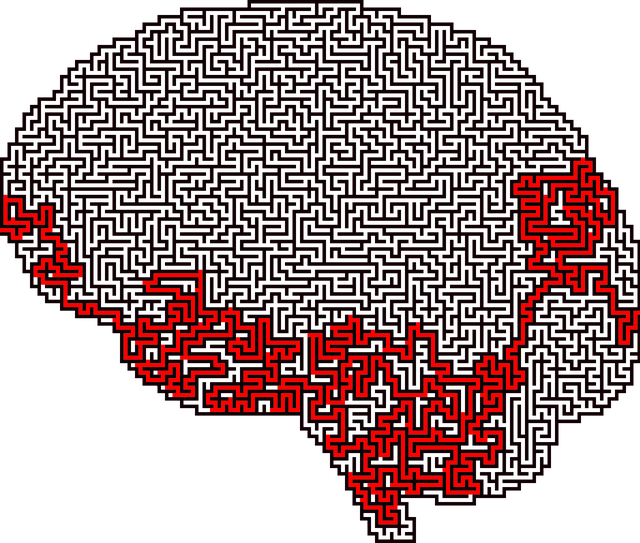Greenwood Village stands out for its progressive mental health initiatives, with Gender Identity Therapy (GIT) at the forefront. GIT clinics collect diverse data through EHRs, online surveys, and community outreach, offering a nuanced view of mental wellness across demographics. Data preprocessing is crucial to ensure integrity, enabling researchers to develop effective interventions and public awareness campaigns. In-depth case studies reveal that supportive environments enhance self-esteem, especially within the LGBTQ+ community. Advanced statistical methods help identify trends, correlations, and the effectiveness of tailored GIT interventions. By interpreting data, therapists can personalize treatments, advocate for inclusive policies, and ultimately improve mental health outcomes for all.
Mental health data analysis plays a pivotal role in understanding and addressing psychological well-being. This article delves into the intricate process of analyzing and interpreting mental health data, highlighting its significance in shaping effective therapy strategies. We explore various aspects, from understanding data collection methods through diverse sources to preprocessing for accurate insights. Case studies from Greenwood Village Gender Identity Therapy exemplify trend identification. Statistical techniques are introduced to uncover patterns, while practical implications guide actionable therapy strategies.
- Understanding Mental Health Data: Collection and Sources
- Preprocessing and Cleaning Data for Accurate Analysis
- Exploring Gender Identity Trends using Case Studies from Greenwood Village
- Statistical Techniques for Uncovering Patterns and Insights
- Translating Data Findings into Actionable Therapy Strategies
Understanding Mental Health Data: Collection and Sources

Understanding Mental Health Data begins with recognizing the diverse sources and methods of collection. In Greenwood Village, Gender Identity Therapy clinics play a pivotal role in gathering valuable insights into individuals’ psychological well-being. These specialized practices often employ advanced assessment tools tailored to specific mental health concerns. By integrating data from various platforms, such as electronic health records, online surveys, and community outreach programs, therapists gain comprehensive overviews of patients’ experiences.
The development of Mental Wellness Coaching Programs and Compassion Cultivation Practices has further enriched the landscape of data collection. Community Outreach Program Implementation initiatives ensure that diverse populations are reached, enabling a broader understanding of mental health trends across different demographics. This multi-faceted approach leverages various sources to paint a nuanced picture of mental wellness, guiding evidence-based strategies for improving access to care and enhancing overall psychological resilience.
Preprocessing and Cleaning Data for Accurate Analysis

Before delving into mental health data analysis, a crucial step is preprocessing and cleaning the data to ensure accurate results. This involves meticulously examining and preparing the dataset, addressing any inconsistencies or missing values. For instance, at Greenwood Village Gender Identity Therapy, therapists might collect data from various sources like patient records, surveys, and therapy sessions. Preprocessing includes handling missing responses through imputation methods or removing incomplete cases, ensuring the integrity of the analysis.
Additionally, cleaning the data involves correcting errors, standardizing formats, and transforming variables to make them suitable for analysis. This step is vital in developing effective crisis intervention guidance and even public awareness campaigns. By meticulously preparing the data, researchers can gain deeper insights into mental health trends, ultimately enhancing confidence-boosting strategies and improving overall well-being.
Exploring Gender Identity Trends using Case Studies from Greenwood Village

In Greenwood Village, a thriving community known for its progressive mental health initiatives, gender identity therapy has emerged as a beacon of hope and understanding. By delving into case studies within this village, researchers have uncovered valuable insights into the evolving landscape of gender identity. These studies explore how individuals navigate their emotional well-being promotion techniques and mood management strategies while embracing their authentic selves. The data reveals trends that highlight the impact of supportive environments on self-esteem improvement, particularly for those who identify as part of the LGBTQ+ community.
Through these case studies, therapists in Greenwood Village have contributed to a growing body of knowledge on gender identity therapy. By analyzing and interpreting patient outcomes, they’ve demonstrated the effectiveness of tailored interventions in fostering positive mental health outcomes. This approach not only addresses immediate concerns but also empowers individuals to thrive, ensuring their emotional resilience and overall well-being.
Statistical Techniques for Uncovering Patterns and Insights

In the realm of mental health data analysis, statistical techniques are pivotal tools for uncovering meaningful patterns and insights. By employing advanced methods, researchers and therapists at Greenwood Village Gender Identity Therapy can gain valuable perspectives on various aspects of mental well-being. These include identifying trends in specific demographics, understanding the effectiveness of different therapeutic approaches, and recognizing correlations between mental health issues and social factors. For instance, analysis might reveal that certain compassion cultivation practices enhance empathy building strategies, thereby improving Mental Health Awareness.
The data-driven insights can inform tailored interventions and personalized treatment plans. Through statistical techniques, therapists can assess the impact of their sessions and adjust their approaches accordingly. This not only improves patient outcomes but also contributes to the broader understanding of mental health dynamics. By integrating Compassion Cultivation Practices into therapy sessions, Greenwood Village Gender Identity Therapy can foster an environment that promotes Empathy Building Strategies, ultimately enriching the Mental Health Awareness landscape.
Translating Data Findings into Actionable Therapy Strategies

In the realm of mental health data analysis, interpreting findings is just the first step. The true power lies in translating those insights into actionable therapy strategies that can significantly impact patient outcomes, especially in specialized areas like Greenwood Village Gender Identity Therapy. By delving into the collected data, therapists and researchers can uncover patterns and trends related to gender identity-based mental wellness issues. This process enables the development of tailored interventions, ensuring that therapy strategies are not one-size-fits-all but rather adapted to meet the unique needs of each individual.
For instance, analysis might reveal the effectiveness of Mindfulness Meditation as a complementary tool for managing anxiety within this specific demographic. Such insights can lead to the integration of mindfulness practices into therapeutic programs. Furthermore, understanding the data can inform Mental Wellness Coaching Programs Development, allowing coaches to design more effective guidance and support systems. Ultimately, leveraging data-driven insights contributes to advancements in mental health policy analysis and advocacy, shaping more inclusive and responsive healthcare systems.
Mental health data analysis is a powerful tool for understanding complex issues like gender identity, as demonstrated by case studies from Greenwood Village. By efficiently preprocessing and cleaning data, we can uncover meaningful patterns using robust statistical techniques. These insights have the potential to transform therapy strategies in Greenwood Village Gender Identity Therapy and beyond, leading to more effective support for individuals navigating their mental health journeys. This article highlights the critical steps involved, from data collection to actionable findings, emphasizing the importance of rigorous analysis in improving mental wellness outcomes.










